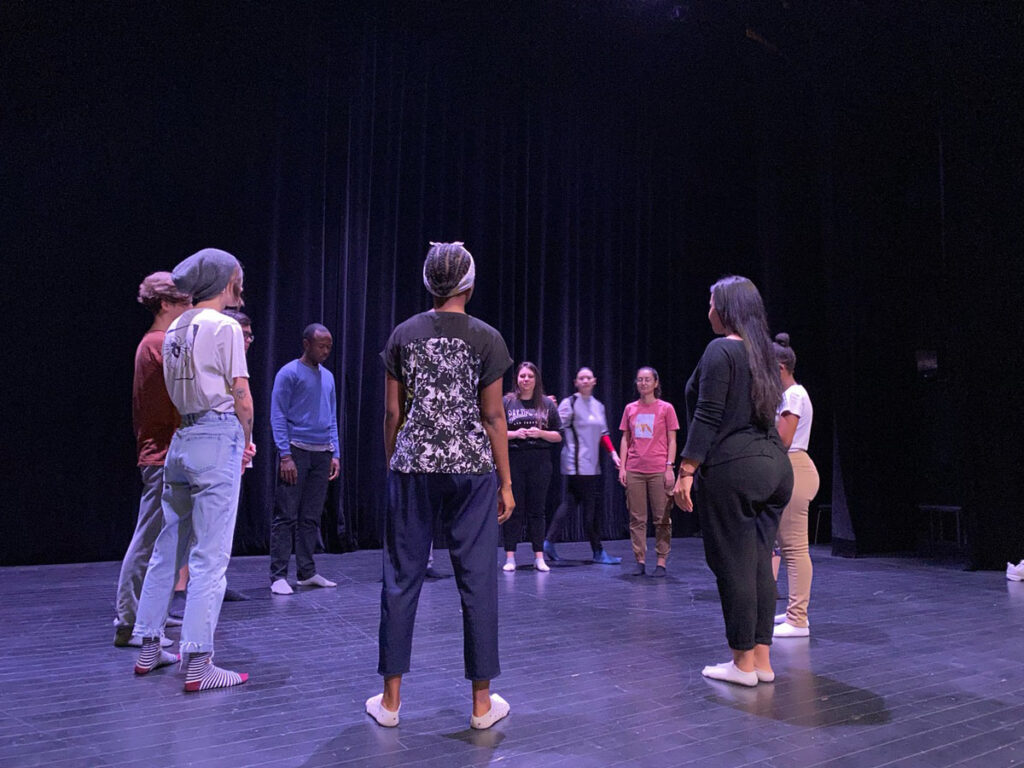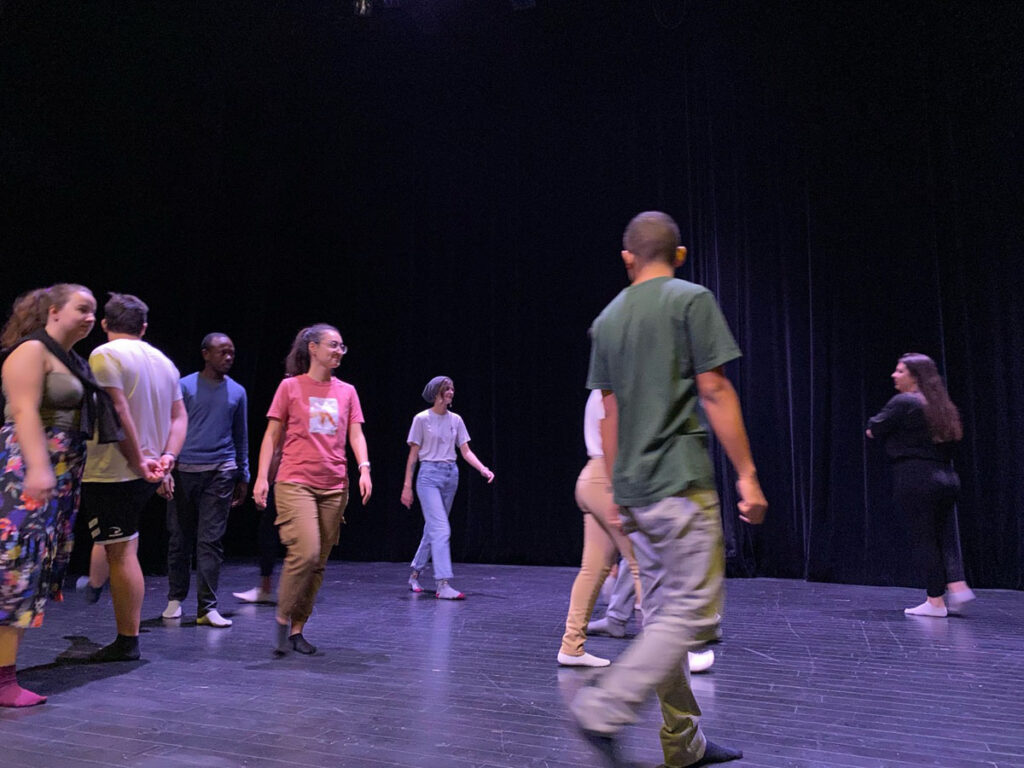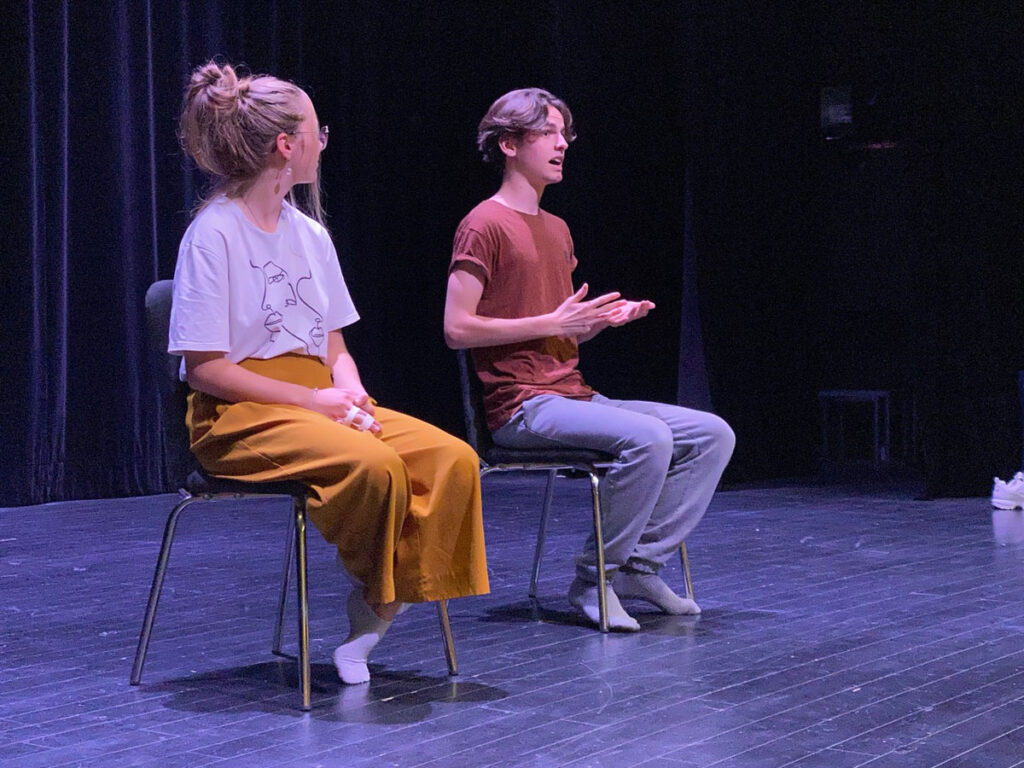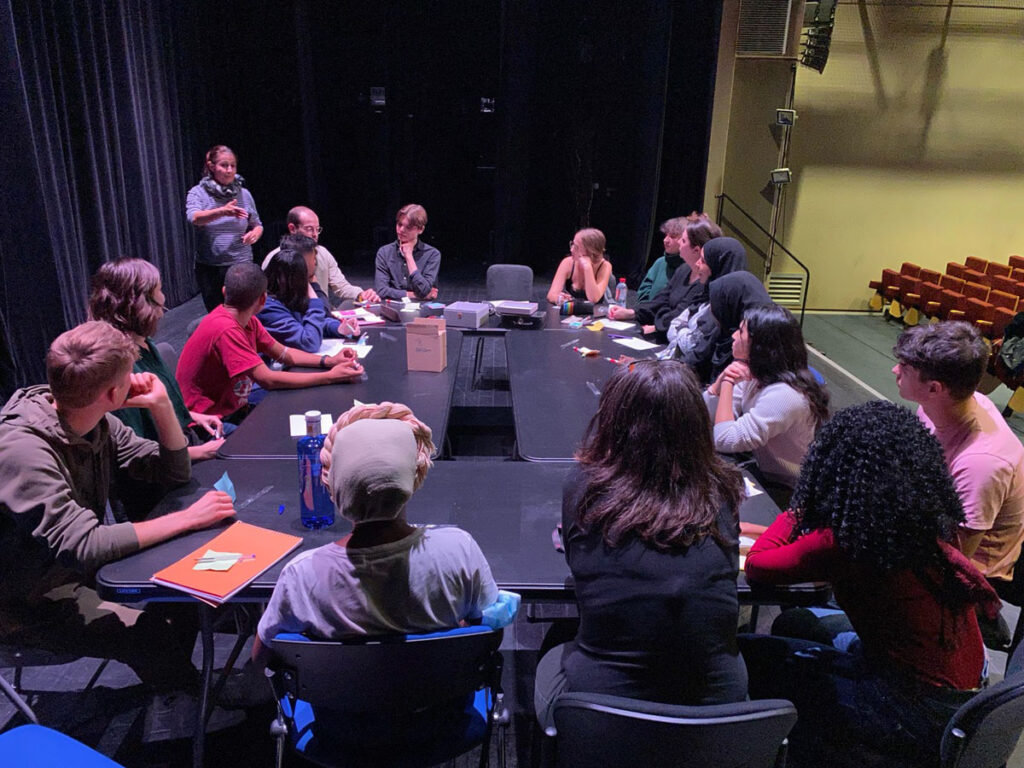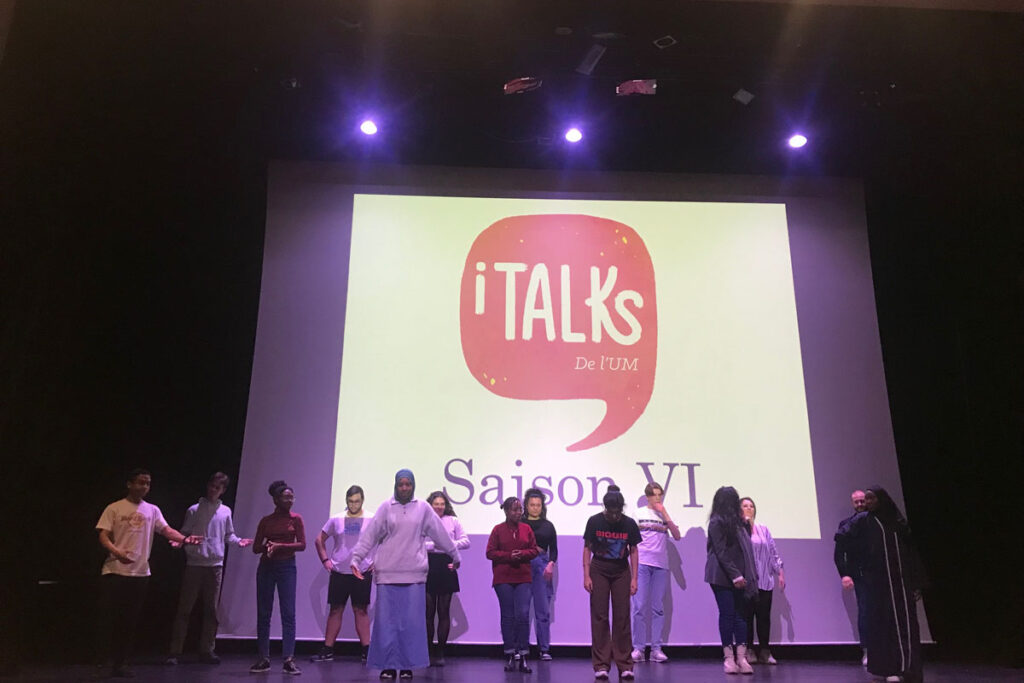Eloquence in training
How do you practice public speaking when you're at university? At the UM, it's all thanks to iTALKS. This off-the-beaten-track training program enables students to acquire the skills they need to get their ideas across more effectively, and turn these sometimes dreaded tests into real moments of pleasure.
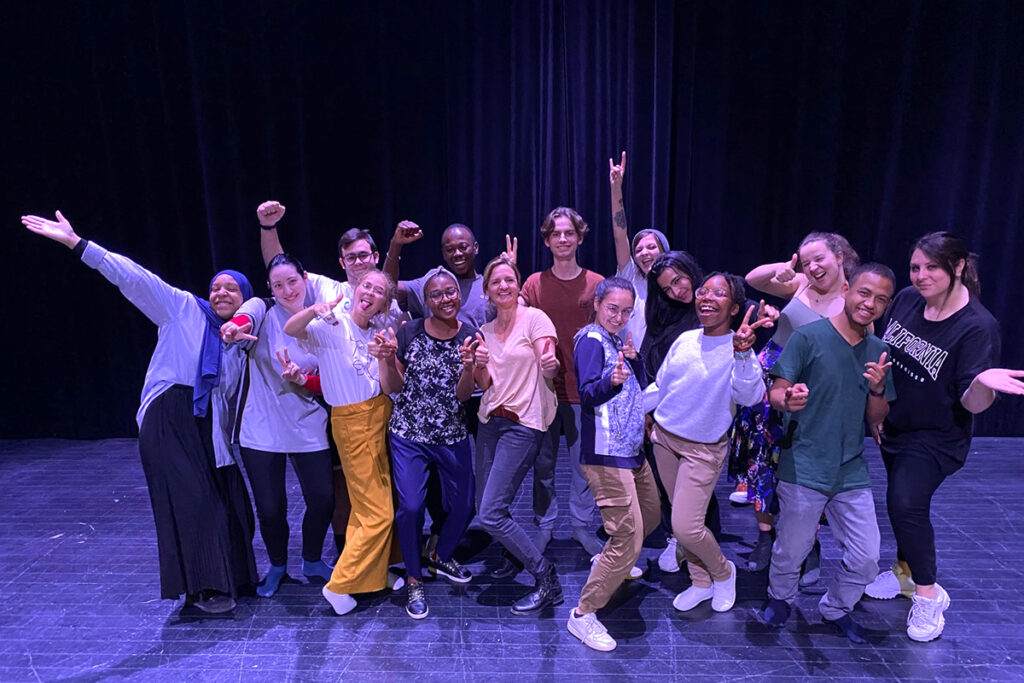
Exams, competitions, presentations, job interviews... there's no shortage of opportunities for students to speak in public. And yet, when they think about it, many of them conjure up stage fright, anxiety and even panic. To help them face up to this, and even turn it into a joyful prospect, the University is offering iTALKs for the 7th year running. On the program: drama courses and writing workshops to prepare them to take to the stage for an eloquence contest.
" The iTALKs are directly inspired by Ted Talks, the aim being to offer students support in identifying the ideas they want to disseminate and giving them the means to do so," explains Frauke Batbedat, general manager of the Maison des étudiants Aimé Schoenig. The initiative was first taken up by students from the doctoral students' association in economics and management in 2015. To make it a reality, Frauke Batbedat has surrounded herself with professionals, including actress Anne-Sophie Leyre and author Sarah Fourage, who are responsible for training the iTALKeurs.
Relax
The primary objective is to play down the idea of public speaking," begins Anne-Sophie Leyre of Compagnie de l'Astrolabe. I explain to them that it's normal to have stage fright; it's what puts us in the best physiological dispositions to excel. There are no good or bad speakers, but learning to speak in public is a skill that can be acquired. The students begin their training with a 3-day immersion course with the actress. This first course is approached as a laboratory where each student tests, surprises and surpasses him or herself, and finds support within him or herself... all while having fun, through a variety of exercises, often very playful. " Here, we learn through play. Interpreting is playing anyway!
On the program are the fundamentals: gestures, breathing, anchoring, breath, gaze and voice. " It's like learning to drive: you have to get the basics right first, and it's stressful for the first few miles, but then you stop paying attention and it can even become a pleasure ".
And to pave the way for the pleasure of being on stage, the actress insists on the importance of the group immersion course. A certain cohesion is necessary for them to be able to let go, they need to feel safe and they need to feel listened to," explains the actress who sees the iTALKeurs as a theater troupe. The iTALKs family isn't just an eloquence contest, it's a human adventure.
Personal concerns
The aim of these first three days on stage is to encourage group cohesion, but also to put down one's ideas and learn to manage one's emotions. " We start by training the body, which is the instrument, then we add the text, which is the musical score. And to create their melody, Sarah Fourage introduces them to the art of writing. " First of all, with collective writing workshops as a warm-up, using authors' texts as raw material," she explains.
After warming up, students are invited to work on writing their own texts. While some arrive with a precise idea of what they want to talk about during the eloquence contest, others see their theme emerge during the workshops. A topic that may relate to their studies, but often reflects more personal concerns. " In creating the iTALKS, we wanted to highlight the richness and inventiveness of the university community, and enable differences to come together," emphasizes Frauke Batbedat.
Education, language, the art of politics, the Covid year, love, travel, music, trust, silence, mourning... The subjects chosen for previous editions highlight the personal dimension of their productions. " They put into words what moves them ", emphasizes the author. Once they've defined their subject, the students begin by writing a one-minute teaser, " a specific piece of writing that has to make people want to see it, so we create suspense ".
Poignant gales
Thanks to Sarah Fourage's personalized coaching, they then set about writing their 5-minute presentation for the eloquence contest. " I help them find their angle of attack, but my job also consists a lot in helping them cut through the text. It's frustrating for them to have only 5 minutes of stage time in the end ".
Once they've got their scripts down, the students head off for a second stage of scenic and corporal expression, which "is all about interpretation, embodying one's message, making one's own words one's own, adding strength, nuance and color, while retaining one's own uniqueness ", explains Anne-Sophie Leyre. The result: 5 minutes of emotion on stage, sometimes with " poignant outbursts for a generation facing complex issues ", as Sarah Fourage points out.
The presentation meeting for this 7th edition, which took place on October 11, was attended by around a hundred undergraduate and doctoral students from all parts of the University. Around twenty of them will have the chance to take part in this training course and then in the grand finale of the eloquence contest, to be held on March 28, 2023. It's not a competition against others, it's about surpassing yourself, and everyone wins," Anne-Sophie Leyre points out. " The motto of iTALKS is " Let's have some serious fun", emphasizes Frauke Batbedat. Everyone agrees that the challenge has been met.
